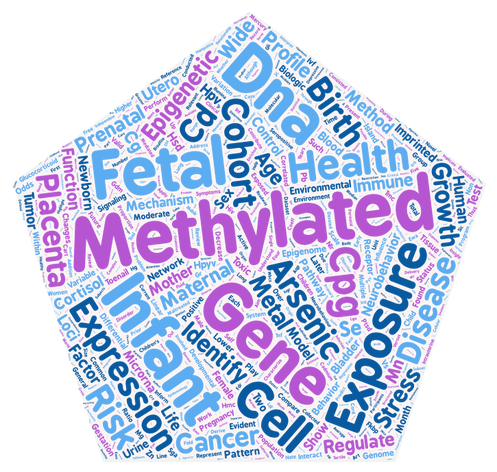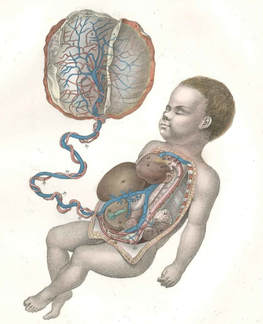Transdisciplinary Approaches to Understand Health and DiseaseResearch in the laboratory utilizes a number of approaches to consider problems related to the environment's influence on human health. We work on human population studies including pregnancy and birth cohorts in Rhode Island and New Hampshire, a cohort of preterm infants from multiple centers across the country, cancer trial populations such as CARET, and as part of the ECHO network of pediatric cohorts.
We apply state-of-the-art molecular tools, including high content arrays and next-generation sequencing technologies to characterize genomic and epigenetic features in a variety of human tissues. This allows us to study genetic variation, gene expression, gene regulation, DNA cytosine modifications including methylation and hydroxymethylation, and the expression of noncoding RNA like microRNA. Many of these techniques are performed right here in the laboratory or working with the Integrated Genomics Core at Emory. We have also taken in-vitro approaches, using cell culture based systems to perform more focused interrogations, and are building collaborations with colleagues at Emory and beyond to use animal models to further our research. Sophisticated statistical and bioinformatic approaches are needed to analyze and interpret this data, and the lab team learns and applies a variety of tools to link the characterized molecular features to environmental factors and human health endpoints. We consider the environment broadly, encompassing physical, chemical, and psychosocial exposures. Work from our group has looked at water and dietary contaminants including arsenic, cadmium, and other toxic metals, air pollution exposures, adversity, stress, metabolic state, mental health, and other important factors which in total encompass an individual's EXPOSOME. |
Project Areas
Epigenomics in the Long-term Health of Preterm InfantsIn collaboration with Dr. Barry Lester at Brown University, the NOVI study of extremely preterm infants, and the NIH ECHO consortium, we are examining epigenetic predictors of neurobehavioral health.
|
The Placenta's Role in the Developmental Origins of Health and DiseaseThe placenta plays a central role in development and we are developing comprehensive molecular profiles of the placenta and linking these to prenatal environmental exposures, newborn, and long-term children's health outcomes.
|
Novel Biomarkers in Environmental CarcinogenesisThrough multiple collaborations with both retrospective and prospective studies we are considering the implications of epigenetic variation in cancer risk.
|




